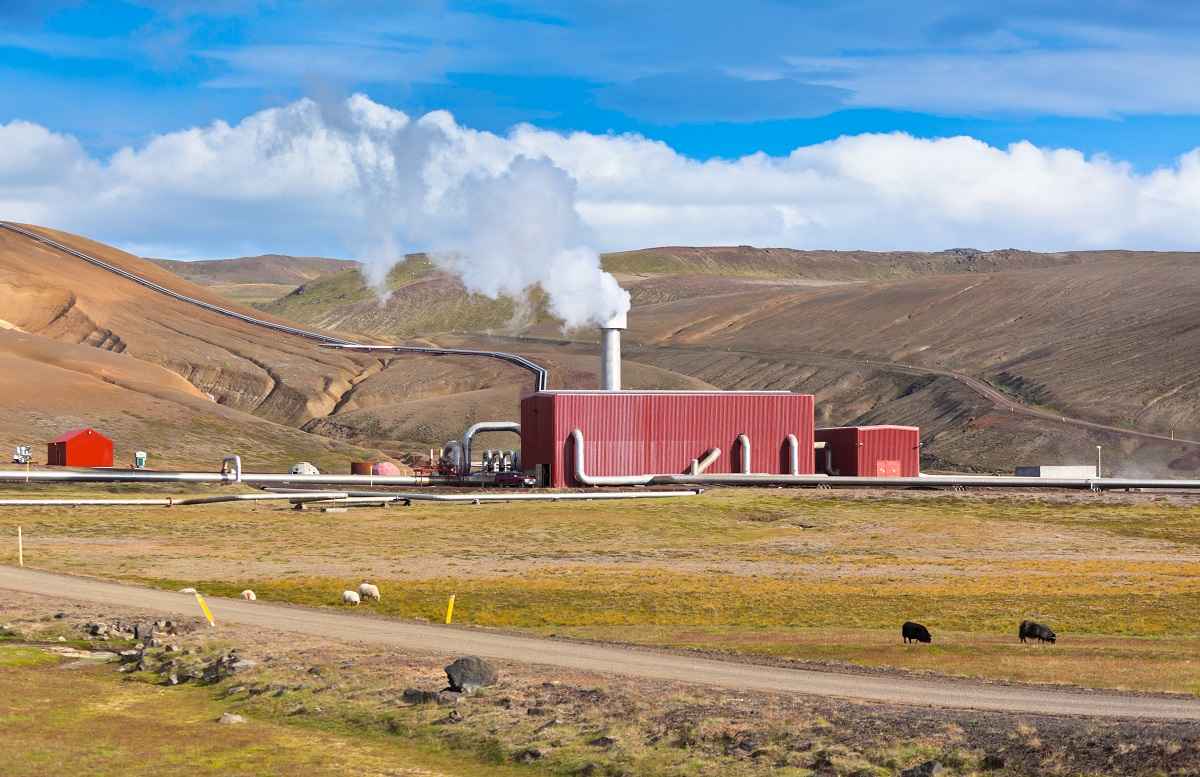What Is Geothermal Energy?
Geothermal energy is the heat derived from the Earth’s internal processes, used to generate electricity and provide heating for various applications. This renewable energy source is produced from the natural heat stored in the Earth’s crust, which can be accessed through wells and geothermal reservoirs. Geothermal energy offers a sustainable alternative to fossil fuels, providing a consistent and reliable source of power.
Geothermal energy systems come in several forms, including geothermal power plants, geothermal heat pumps, and direct-use geothermal systems. Geothermal power plants generate electricity by using steam or hot water from geothermal reservoirs to drive turbines, which then produce electricity. Geothermal heat pumps use the stable temperature of the ground to heat and cool buildings, while direct-use systems tap into geothermal heat for applications like district heating, greenhouse cultivation, and industrial processes.
An essential aspect of geothermal energy is sustainability. Unlike other renewable sources, geothermal energy is available continuously, not reliant on weather conditions like wind or sunlight. This makes geothermal energy a reliable base-load power source that can complement other renewable energy sources.
Geothermal energy also involves environmental considerations. Although it has a smaller environmental impact than fossil fuels, geothermal energy production can result in emissions of hydrogen sulfide and other gases. Proper management and technology can minimize these impacts, making geothermal energy a cleaner and more sustainable energy source.
Why Learn About Geothermal Energy Nowadays?
Learning about geothermal energy is more relevant than ever as the world seeks renewable energy solutions to combat climate change and reduce carbon emissions. As countries and organizations focus on sustainability and energy independence, geothermal energy offers a promising alternative. Here are a few reasons why learning about geothermal energy is valuable:
First, geothermal energy is crucial for sustainable energy production. Geothermal energy provides a consistent and renewable source of power, reducing reliance on fossil fuels. By learning about geothermal energy, you gain the skills to contribute to a more sustainable energy landscape.
Second, geothermal energy plays a key role in base-load power generation. Unlike other renewable energy sources, geothermal energy is available continuously, providing a reliable base-load source of power. This stability is crucial for supporting the energy grid and ensuring a consistent energy supply.
Third, learning about geothermal energy offers a wide range of career opportunities. Professionals with skills in geothermal energy can work in various industries, including renewable energy, engineering, construction, and energy consulting. The ability to design and manage geothermal energy systems is highly valued, providing career growth and development opportunities.
Work in Geothermal Energy
Working in geothermal energy involves a variety of tasks, from exploring geothermal resources to designing geothermal systems and managing geothermal projects. Geothermal engineers and technicians collaborate with various stakeholders, including energy companies, environmental agencies, and construction firms, to ensure the successful implementation of geothermal energy projects.
A typical day for a geothermal energy professional might include conducting geothermal surveys, analyzing geothermal data, and designing geothermal systems. Geothermal engineers use tools like geothermal modeling software, well-logging instruments, and project management platforms to design efficient geothermal installations and track project progress. They also focus on environmental considerations to ensure that geothermal energy production has minimal impact on ecosystems.
Geothermal professionals often specialize in specific areas, such as geothermal power generation, geothermal heat pumps, or geothermal drilling. Each specialization requires unique skills and knowledge. For example, geothermal power generation engineers focus on designing and operating geothermal power plants, while geothermal heat pump specialists design systems for residential and commercial heating and cooling.
The work environment for geothermal energy can vary, with professionals spending time in offices, on-site at geothermal installations, and in the field conducting geothermal surveys. This variety adds to the appeal of the career, offering a mix of technical tasks and hands-on project management.
Career progression in geothermal energy can lead to roles like senior geothermal engineer, project manager, or director of geothermal projects. With experience, geothermal energy professionals may move into leadership positions, overseeing geothermal energy departments and driving renewable energy strategies. Some geothermal energy professionals also choose to work in consulting, providing geothermal expertise to various organizations.
Why Is Geothermal Energy Crucial for Innovation?
Geothermal energy is crucial for innovation because it provides a renewable and sustainable source of energy that drives business growth and reduces environmental impact. Geothermal energy offers a reliable alternative to fossil fuels and encourages the development of energy-efficient technologies. Here are some reasons why geothermal energy is key to innovation:
First, geothermal energy fosters sustainable energy innovation. By harnessing the Earth’s internal heat, geothermal energy provides a consistent source of renewable power. This focus on sustainability drives innovation by encouraging the development of cleaner and more efficient energy solutions.
Second, geothermal energy supports base-load power generation. Unlike other renewable energy sources, geothermal energy is available continuously, providing a reliable base-load source of power. This stability is crucial for promoting grid reliability and supporting other renewable energy sources like solar and wind.
Third, geothermal energy is essential for energy independence. By providing a domestic source of energy, geothermal energy reduces reliance on imported energy sources, promoting energy security. This focus on energy independence drives innovation by encouraging organizations to explore new energy solutions and business models.


